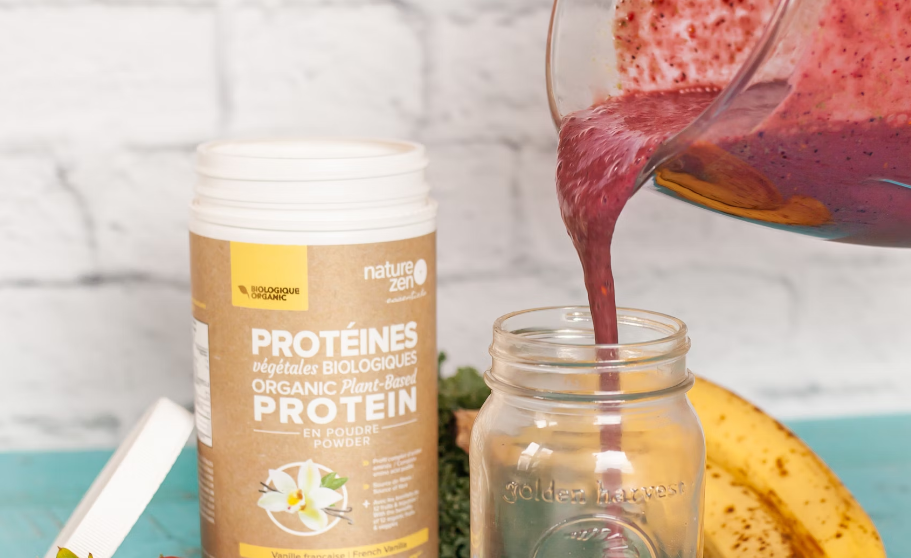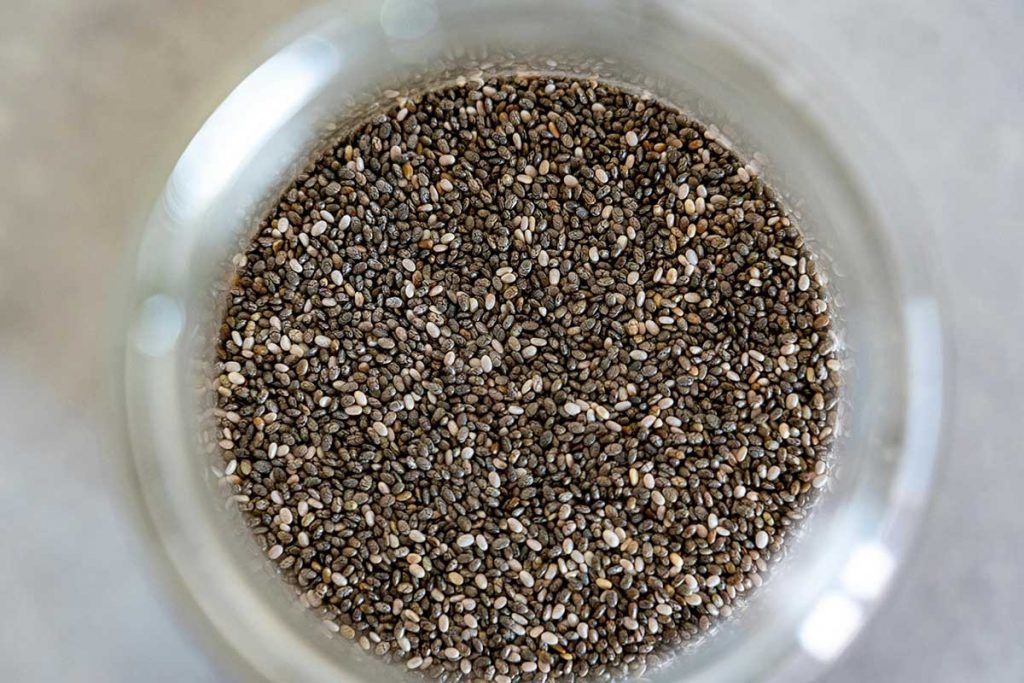How Much Protein Intake Do You Actually Need?

© Nature Zen / Unsplash
Whether you are on the internet all day or have been living under a rock for the past few years, one thing is certain. You have definitely heard of protein intake. Celebrities, influencers, and random internet users will at least once in their lives share a video of “How Much I Eat In A Day?“. With being exposed to so much content about food, it is natural to wonder what your food entails and what nutritional values it can offer. One of the most important nutrients your body will need is known as protein. But, what are proteins, and is there something to too much protein intake? Well, we have the answers for you!
What Are Proteins?
Proteins are fundamental elements in your body, serving as the primary units for muscles, tendons, organs, skin, enzymes, hormones, neurotransmitters, and various crucial molecules. These proteins are composed of smaller units called amino acids, which link together like beads on a string. While your body can synthesize some amino acids on its own, you must acquire others, known as essential amino acids, through your diet.
Dietary sources of protein have varying amino acid compositions. Lean meats and dairy products typically contain all the essential amino acids, making them complete protein sources, whereas plant-based diets may have a less abundant supply of these essential amino acids.
Where Does Protein Derive From?
Protein derives from a variety of sources, primarily from the foods we consume. Here are some common sources of dietary protein:
Animal Sources:
- Meat: Such as beef, poultry (chicken, turkey), pork, and lamb.
- Fish: Including salmon, tuna, cod, and other seafood.
- Dairy Products: Such as milk, cheese, yogurt, and eggs.
- Seafood: Like shrimp, crab, and shellfish.
Plant Sources:
- Legumes: Such as beans (e.g., black beans, lentils, chickpeas), peas, and peanuts.
- Nuts and Seeds: Including almonds, peanuts, sunflower seeds, and chia seeds.
- Grains: Some grains like quinoa and bulgur are relatively high in protein.
- Soy Products: Tofu, tempeh, and edamame are rich in plant-based protein.
- Vegetables: Broccoli, spinach, and Brussels sprouts contain protein, though in smaller amounts compared to other sources.
Processed Protein Sources:
- Protein Powders: Such as whey, casein, or plant-based protein powders.
- Processed Meat Alternatives: Like veggie burgers, tofu-based products, and seitan.
Why Does Our Body Need Proteins?
Protein is a vital component of a balanced diet because it serves various essential functions in our body. According to Jessica Corwin, a lead registered dietician at Corewell Health in Michigan, protein-rich foods supply amino acids that support tissue repair, bolster the immune system, and contribute to hormonal regulation. Additionally, protein aids in muscle development and promotes satiety during meals. However, it’s important to note that protein’s effectiveness relies on a well-rounded diet; if other nutritional sources are lacking, the body may prioritize burning protein rather than utilizing it for its diverse functions.

Our bodies need protein for a wide range of essential functions. Protein is crucial for building and repairing tissues, including muscles, skin, and organs. It plays a central role in enzymes that control metabolism and hormone regulation. Protein also supports the immune system, helps transmit signals in the nervous system, and transports vital substances in the bloodstream. It contributes to maintaining fluid balance, pH balance, and healthy hair, skin, and nails. Additionally, protein aids in muscle function, satiety, and weight management, and it plays a vital role in wound healing. In summary, protein is indispensable for overall health and well-being.
What Happens if You Don’t Get Enough Protein Intake?
If you don’t get enough protein intake, it can lead to a range of health issues and potential deficiencies. Protein is an essential nutrient, and a deficiency can impact various aspects of your health. Here are some of the consequences of not getting enough protein:
1. Muscle Loss
One of the most noticeable effects of inadequate protein intake is the loss of muscle mass. Protein is crucial for maintaining and repairing muscle tissue. Without enough protein, your muscles may become weaker and more prone to injury.
2. Weakened Immune System
Protein plays a key role in the immune system. A lack of protein can weaken your body’s ability to defend against infections, making you more susceptible to illnesses.
3. Hair, Skin, and Nail Issues
Protein is essential for the health of your hair, skin, and nails. A deficiency can lead to brittle hair, dry skin, and brittle nails.
4. Edema
Protein helps regulate fluid balance in the body. A lack of protein can lead to edema, which is the accumulation of fluid in tissues, causing swelling and puffiness.
5. Fatigue and Weakness
Protein provides energy, and without enough of it, you may feel fatigued and weak. This can impact your daily activities and overall well-being.
6. Difficulty Healing
Protein is necessary for tissue repair, so a deficiency can slow down the healing process. Wounds, injuries, and surgeries may take longer to heal.
7. Impaired Growth and Development
In children and adolescents, insufficient protein intake can lead to stunted growth and developmental delays.
8. Changes in Hair and Skin Pigmentation
Severe protein deficiency can cause changes in hair and skin pigmentation, leading to a lighter or reddish appearance.
9. Mental Health Effects
Protein is important for the production of neurotransmitters, which are chemicals that influence mood and mental well-being. Inadequate protein intake may contribute to mood swings and cognitive issues.
10. Weakened Heart and Respiratory Muscles
Protein is necessary for the function of the heart and respiratory muscles. A protein deficiency can lead to cardiovascular and respiratory problems.
So, How Much Protein Intake Do You Actually Need?
To maintain a healthy diet, it’s recommended that a portion of your daily calorie intake, ranging from 10% to 35%, should come from protein. For example, if you consume 2,000 calories a day, this would amount to 200–700 calories from protein, which translates to 50–175 grams of protein.
The general guideline for an average sedentary adult is about 0.8 grams of protein per kilogram of body weight. For instance, if someone weighs 165 pounds (75 kilograms), they should aim for around 60 grams of protein daily.
As people age, around 40–50 years old, they begin to experience sarcopenia, which is the loss of muscle mass. To prevent this and maintain independence and quality of life, protein needs to increase to about 1–1.2 grams per kilogram, which equals 75–90 grams per day for a 75-kilogram individual.
How This Number Can Change Based on Your Excercise Routine
For individuals who engage in regular exercise, their protein requirements are higher. People who engage in weightlifting or are training for endurance events like running or cycling may need 1.2–1.7 grams per kilogram of body weight. However, it’s important not to exceed excessive protein intake, which is defined as more than 2 grams per kilogram of body weight each day.
In cases where someone is overweight, their protein needs are adjusted based on their ideal body weight to avoid overestimating requirements. For personalized dietary plans and guidance, consulting with a dietitian is advisable.
Additional FAQs About Protein Intake
Here are some answers to the most common questions regarding protein intake:
1. What Are Some Protein-Rich Foods?
Here are some good food sources of protein along with their protein content in grams per serving:
Tuna, salmon, haddock, or trout (3 ounces): 21 grams
Cooked turkey or chicken (3 ounces): 19 grams
Plain Greek yogurt (6 ounces): 17 grams
Cottage cheese (½ cup): 14 grams
Cooked beans (½ cup): 8 grams
Milk (1 cup): 8 grams
Cooked pasta (1 cup): 8 grams
Nuts (¼ cup or 1 ounce, all types): 7 grams
Egg (1): 6 grams
2. How Much Should My Protein Intake Be as a Woman?
Protein intake varies from person to person depending on factors such as age, activity level, and overall health. As a general guideline, the Recommended Dietary Allowance (RDA) for protein for women is about 0.8 grams of protein per kilogram of body weight per day.
For example, if a woman weighs 70 kilograms (154 pounds), her estimated protein needs would be around 56 grams of protein per day (70 kg x 0.8 g/kg).
3. Is More Protein Intake Better for You?
More protein intake is not necessarily better for everyone, and the appropriate amount of protein varies from person to person based on individual factors and goals.
4. Is Too Much Protein Possible?
Yes, it is possible to consume too much protein, and excessive protein intake can have both short-term and long-term consequences. Some potential issues associated with consuming an excessive amount of protein are Kidney strain, dehydration, digestive discomfort, mineral imbalances, increased caloric intake, and the risk of nutrient imbalance.
What about you, are you a “protein junkie” or do you not look at your daily nutritional intake? Let us know below!



